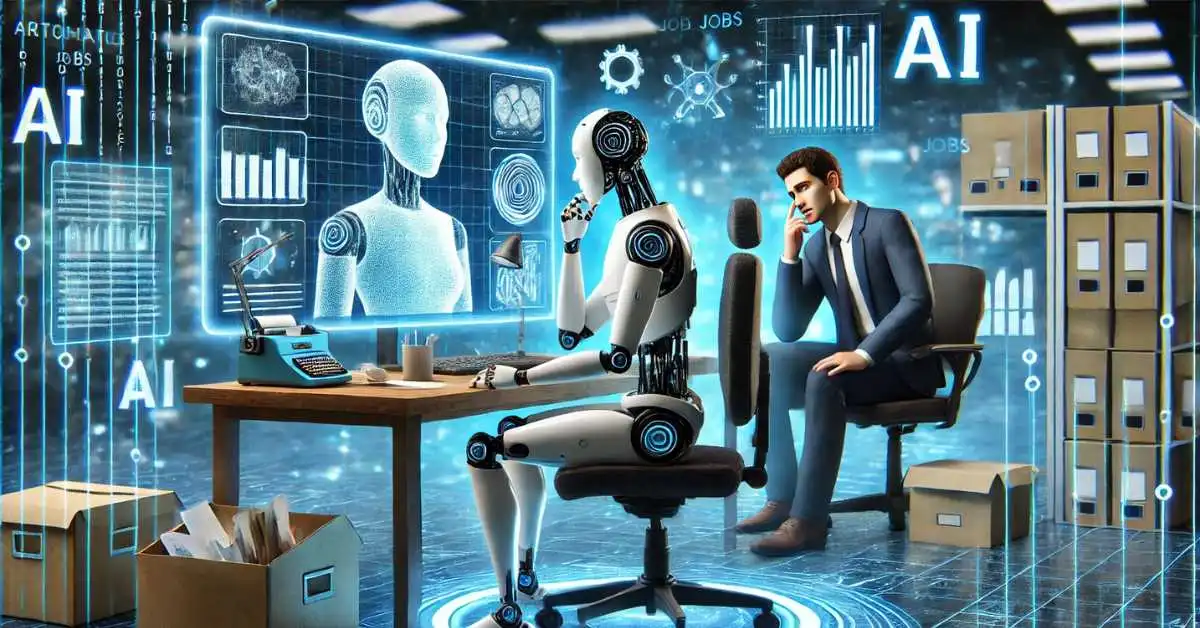Introduction
The following article examines the complete extent of AI automation and the future of work together with its impact on labor markets while it transforms occupation types and alters industrial landscapes and presents actionable steps to remain competitive in changing business conditions.
The development momentum of AI forces rapid changes to multiple industrial procedures. Companies benefit today because automated systems alongside AI-powered chatbots provide 24/7 customer service to their clientele across all business sectors from healthcare to manufacturing operations. States of rapid technological development have raised an essential inquiry Will AI replace humans in the workforce?
What Is AI and How Does Automation Work?
Understanding AI
AI refers to the simulation of human intelligence in machines. The programmed systems demonstrate decision-making abilities which outperform human precision while making decisions at a higher speed. When discussing AI relates to artificial intelligence within machines which handles problem solving, voice recognition and chess capabilities.AI replacement of humans exists which requires us to study the future relationship between AI automation and the future of work.
The Role of Automation
Technology applications in automation systems allow them to execute work with minimal human worker involvement. Organizations use refined operations as a method to decrease expenditures while minimizing processing duration. Modern industries benefit from automation through both product assembly operations and email marketing campaigns to run at increased effectiveness and speed. The current time has witnessed AI automation and the future of work Changes in knowledge-based processes.
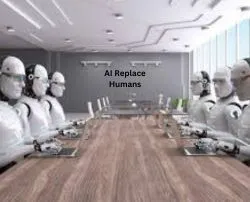
The Evolution of AI in the Workplace

The progress of technology exceeded expectations since the first industrial revolution. The introduction of machinery operated by steam power replaced human labor at that time. The current time has witnessed AI automation and the future of work Changes that drive transformations in knowledge-based processes. Current operations employ automated systems to perform repetitive work as well as data handling and decision-making functions which allows strategic personnel to take center stage.
Industries Most Affected by AI and Automation
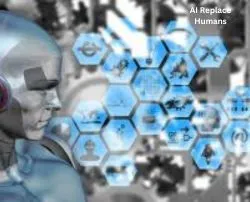
Manufacturing
Automation through robotics and AI now controls the production of vehicles as well as their testing and packaging procedures. Industrial operations extend through continuous factory operations due to AI automation which causes minimal production interruptions.
Healthcare
AI technology through diagnosis tools together with robotic surgery systems improves patient medical care. The analysis of future trends helps doctors make rapid decisions which prove accurate.
Retail and Customer Service
Numerous virtual assistants and AI chatbots provide both immediate help to customers while automated self-checkout systems remove the necessity of cashiers.
Finance and Banking
The technology detects corporate fraud and automatically approves loans together with providing financial recommendations to investors. The decision-making process of trading bots operates through data-analysis algorithms at the speed of milliseconds.
Transportation and Logistics
Companies have made their delivery system more efficient with self-driving vehicles in combination with drone deliveries and AI routes that minimize costs.
Education
Academic technology equips teaching with individualized lessons which alter instantly and conduct automatic feedback while optimizing school operations remarkably.
Jobs Most Vulnerable to AI

Specific employment sectors face enhanced risks due to the advance of AI automation and the future of work developments. Roles which execute regular procedures along with administrative data duties and work with few clients face the highest danger of replacement by automation.
- Data entry clerks
- Telemarketers
- Cashiers
- Warehouse workers
The number of future employees in these positions may decrease significantly since automation systems advance.
Jobs That Will Thrive in the Age of AI
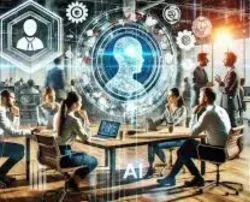
The good news? Not all jobs are at risk. Jobs that need human intellectual strength as well as emotional understanding and sophisticated analytical abilities will see growth rather than decline. These include:
- AI engineers and developers
- Healthcare professionals
- Artists, writers, and designers
- HR specialists and therapists
The future workforce needs these professions because machines lack the abilities required for these roles. Employment sectors face enhanced risks due to the advance of AI automation and the future of work developments.
Human Strengths in an AI-Driven World

All evidence suggests that humans cannot be substituted in various essential roles. The ability to display emotional intelligence along with ethical decision-making skills and interpersonal relationships remains beyond technology. AI automation and the future of work establish that empathy along with intuition and moral judgment represent critical qualities which machines cannot perform on their own. AI automation will dominate different functions of work but human supervision together with engagement continues to be vital for business operations.
Ethical and Social Challenges

Multiple issues appear before us when artificial intelligence systems continue to advance
:
- Unemployment: Massive sections of the workforce face unemployment risks which come from automation implementation.
- Widening Inequality: The system of inequality continues to expand because workers without advanced skills face an increased chance of economic disadvantages.
- Bias in AI: AI systems generate results that match the quality of input data since inappropriate training data results in inaccurate outcomes.
Businesses and governments need to work together for ethical AI management and social support network development. AI automation and the future of work that empathy along with intuition and moral judgment represent critical qualities which machines cannot perform on their own.
Prepare for the AI Future
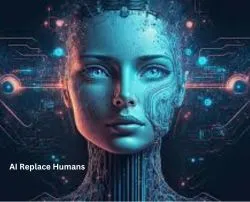
Several steps will help you safeguard your professional future against AI automation and the future of work as follows:
- Keep Learning: Continuous education requires following novel trends in your domain as a professional.
- Reskill & Upskill: Learn AI-related technologies or complementary skills.
- Embrace Flexibility: Flexible career choices should remain your long-term goal since the need for role or industry changes may emerge.
- Strengthen Soft Skills: The development of leadership abilities along with communication expertise and creativity represents essential competencies which cannot be replaced.
Organizations need to establish policies that protect fair transitions between old and new methods of work. Institutional programs to retrain workers together with all-inclusive hiring methods will help people transition smoothly.
Human-AI Collaboration: A Win-Win
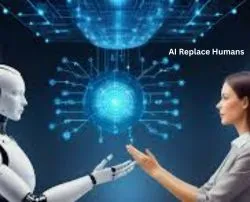
AI demands co-work not apprehension from us human beings. Somewhere in the future artificial intelligence will take on monotonous responsibilities as people concentrate on developing strategies and innovations. That’s the ideal hybrid model. AI automation and the future of work point to a collaborative future. The most beneficial results come from business operations which achieve equilibrium between AI and human work.
Real-World Example: The Medical Field
The current use of AI systems allows medical professionals to perform diagnostic scans on imaging data to generate diagnostic possibilities. Even though machines support the process they need humans to decide in the final analysis. Better outcomes coupled with higher efficiency result from this team collaboration model. AI automation and the future of work is a collaborative future.
Real-World Example: Marketing Teams
AI handles data analysis for behavioral predictions in customers therefore human storytellers must develop emotions that touch the audience. A human element remains essential for fulfilling that particular task. AI replacement of humans exists which requires us to study the future relationship between AI automation and the future of work.
Role of Governments and Businesses
The public sector alongside private businesses need to join forces for achieving their goals.
- Fund education and retraining programs
- Ensure ethical AI development
- Create regulations that prevent misuse
A human-AI partnership system will define upcoming work arrangements while achieving better inclusivity.
Global AI Trends
The U.S. together with China and Germany allocate substantial funding to construct AI systems. Countries in developing phases now adopt artificial intelligence solutions for their healthcare along with educational and manufacturing sectors. The AI automation and the future of work will produce new technological employment possibilities alongside marketing positions.
AI and Entrepreneurship
The development of AI technologies allows startup companies to create intelligent products that consist of automated legal assistance combined with personalized exercise solutions. The combination of AI automation and the future of work will produce new technological and operation-based employment possibilities alongside marketing positions.
New Careers Created by AI
Some job positions disappear yet others appear to replace them:
- AI ethicists
- Data scientists
- Robotics maintenance experts
- AI trainers and auditors
Special technical abilities are needed to perform these professional positions along with substantial financial compensation. It’s not all doom and gloom. AI automation and the future of work is a collaborative future.
Conclusion
AI replacement of humans exists as a fact which requires us to study the future relationship between AI automation and the future of work. Learning at all times and accepting our human capabilities will lead us to build a technology-powered society instead of an automated workforce. The future success requires united work rather than rivalries.
FAQs
1. Will AI completely replace human jobs?
Operating systems will eliminate several roles yet human work focusing on interpersonal relationships will persist.
2. What industries are most impacted by AI automation?
The industries of manufacturing, finance and healthcare and retail and logistics systems are currently experiencing the most significant transformations.
3. How can workers stay relevant in the AI era?
Workers must follow three paths: first, becoming more skilled and second, developing fresh skills and third, emphasizing their creative mindset and strategic capacity.
4. What is the future of work in an AI-driven world?
People alongside AI form a combined system that achieves better efficiency and innovations through collaboration.
5. Can AI create new job opportunities?
Absolutely. Professions in data science together with ethical roles and AI supervision roles present quick-growing career options.

